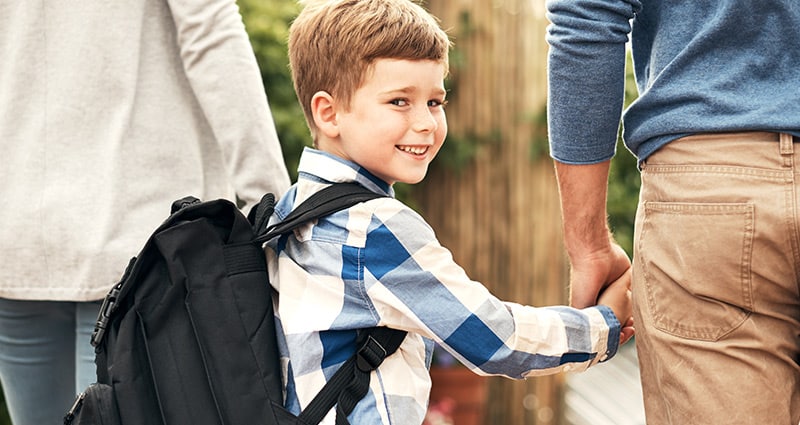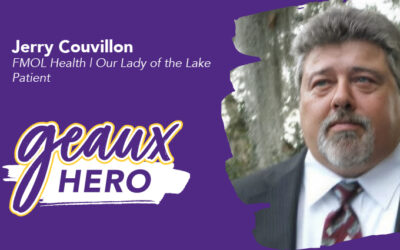Learn about preventing accidents from this Q&A with Alita Lanoux, Pediatric Trauma Program Manager at Our Lady of the Lake Children’s Hospital.
 Our Lady of the Lake Children’s Health is a collaborative statewide pediatric healthcare network with over 180 providers dedicated to kids. Our Lady of the Lake Children’s Hospital in Baton Rouge, Louisiana, serves as the central hub of our network. The hospital is home to the only pediatric emergency room in Louisiana staffed 24/7 by physicians certified in pediatric emergency medicine and is one of only two dedicated pediatric Level 2 trauma programs in Louisiana.
Our Lady of the Lake Children’s Health is a collaborative statewide pediatric healthcare network with over 180 providers dedicated to kids. Our Lady of the Lake Children’s Hospital in Baton Rouge, Louisiana, serves as the central hub of our network. The hospital is home to the only pediatric emergency room in Louisiana staffed 24/7 by physicians certified in pediatric emergency medicine and is one of only two dedicated pediatric Level 2 trauma programs in Louisiana.
The mission of our trauma program is to develop and strengthen local resources to reduce the number of children who are killed or injured by trauma or affected by preventable accidents. Many times, it takes an accident to hit close to home for us to realize the importance of being aware of how these accidents can be prevented. No matter how careful we are as parents/caregivers, it is so important for us to be aware of our kids’ environment—we are not encouraging families to live in a bubble, but we recognize the importance of practicing habits that promote safety.
Q: As both an RN and trauma program manager, what are some of the more common accidental injuries you see in children?
A: Some of the toughest traumas that our team sees are the most preventable ones. For example, Mom and Dad thought it would never be their kid—they got in a wreck and the car seat wasn’t installed correctly, or they didn’t have one at all. Results of circumstance like these are life changing.
Other injuries we see include accidental gunshot wounds. In many of these circumstances, education, both one-on-one with families and through community events, is beneficial and saves lives. We can’t all live in a bubble, but we need to learn and to teach our children that we should be aware and respectful of the things that can harm us. Children are curious, and we want to help direct that curiosity away from danger.
In our area, we see a lot of ATV accidents, go-carts, golf carts, hoverboards—pretty much anything related to outdoors and with wheels or a motor. These machines are powerful, and we need to make sure we are teaching our kids to play safely. Make them wear helmets. Don’t let them operate vehicles that are more powerful than they are capable of handling—make sure they are age appropriate.
Drownings are also preventable accidents that can have devastating consequences. Drownings don’t always happen in pools. Children of any age are at risk of drowning in anything that holds water—bathtubs, creeks, backyard play pools, etc. When kids are near water, we need to be aware and focused of what is going on.
Q: What are some of the main root causes of accidental injuries that may require hospitalization (examples: tripping hazards, medication, etc.)?
A: Pediatric trauma and preventable injuries are the number one killer of children 14 and under in the U.S. Leading causes are:
- Unintentional suffocation—infants under 1 year old
- Drowning—children ages 1–4
- Motor vehicle crashes (includes kids being accidentally run over by a car)—ages 5–24
The leading non-fatal pediatric injuries that are often treated in hospital emergency rooms are:
- Falls
- Unintentional strikes
Q: How can a parents/caregivers model safety for their kids, without causing fear?
We need to educate our kids about the risks of their environment and encourage them to play safely. We encourage parents/caregivers to be age-appropriately transparent with children and help them to learn why they need to be aware of their environment. This creates an environment of trust where kids can feel safe and also provides them with encouragement and tools they need to still be active with confidence instead of fear.
When parents model safety behaviors, it helps explain those behaviors to their kids, so they understand why and see the example being set for them. Engage children in injury-prevention programming and hands-on safety activities offered to the community. Encouraging kids to face their fears and explore their curiosity can be very beneficial, especially when positively reinforcing their efforts.
Our team works hard through efforts like Parenting U—our free podcast, and public education events that help answer a wide variety of common questions related to promoting positive behaviors when raising children.




